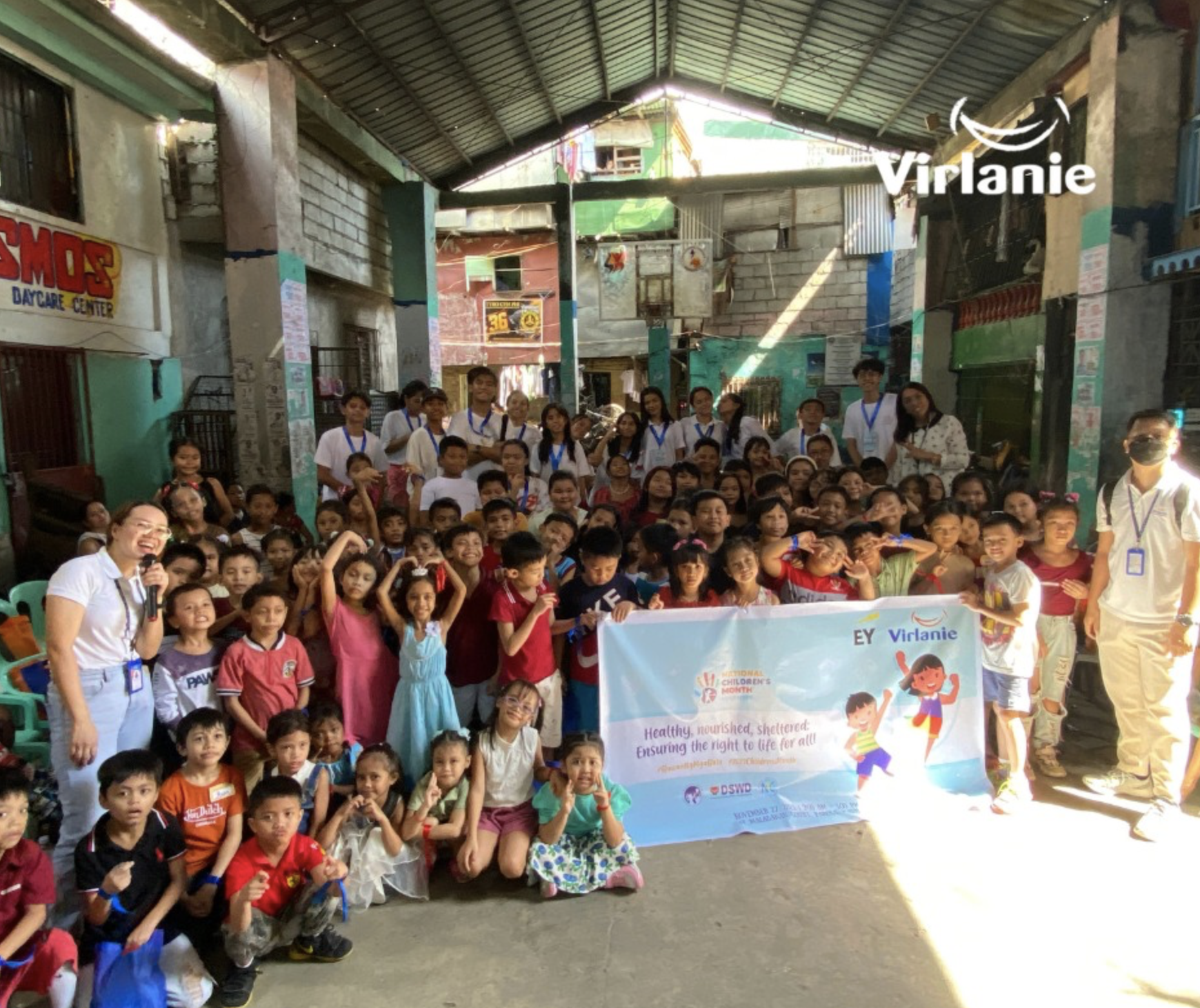
Every quarter of the year, Virlanie Foundation, Inc.’s medical team holds health education sessions for its house parents and children in its residential homes; most recently, a health ed session was held last August 6 and 8 at Elizabeth home’s library for Virlanie’s houseparents.
Headed by Dr. Carmen Rodis, Virlanie’s resident doctor, this quarter’s session was all about contagious diseases: Tuberculosis, Hepatitis B, and Human Immunodeficiency Virus (or HIV). The sessions’ curriculum included the description, signs and symptoms, preventive measures, and actions to take if such disease had been contracted.
These health education sessions aim to educate both the house parents and children about such diseases and preventive measures when contacted create awareness of these diseases and health issues and threats, and break common misconceptions about these diseases.
“Pag sinabi kasing health education, once you educate others, alam nila kung paano ma-prevent yung sakit. Kasi di ba, prevention is better than cure? (When you say health education, when you educate others, they will know how to prevent that certain disease because prevention is always better than cure, right?),” says Virlanie resident nurse Mary Rose Cerillo or Nurse Rose.
Virlanie’s Medical team emphasizes the importance of disease prevention in their sessions, promoting simple methods such as proper handwashing to prevent infections and other diseases.
“Sabi nga, mas expensive kung mag-oospital pa o maggagamot or kung ano pang ibibigay…Sabi ko sa mga audience ko, never underestimate the power of handwashing kasi this simple act can save your travel to the doctor (Like they say, it’s more expensive to go to the hospital or be under medication or anything else…that’s why I always tell my audience (participants) to never estimate the power of handwashing because this simple act can save your travel to the doctor),” Rose says, “at least yung mga houseparent, alam nila kung paano maprevent yung sakit or kung hindi man talaga maprevent, nandiyan na yung presence ng sakit, alam na nila kung paano yung gagawin nila. So ganoon kaimportante yung education (at least the houseparents, they know how to prevent the disease of if not prevented and the disease is already presence, they know what to do or how to respond, That’s how important education is),” she continues.
Houseparents also exchanged thoughts and personal experiences in the sessions, which helped create interaction in between discussions, clarification of preconceived misconceptions about the diseases talked about, and preparing them in situations involving medical emergencies.
“Yung pinaka primary goal nito is to educate the houseparents, lalong-lalo na yung mga nag-aalaga, yung mga caregiver, kasi sila yung mga nag-aalaga dun sa mga bata. Kumbaga yung mga bata dependent sa kanila. Lalong-lalo na yung mga toddlers, mga babies. Tapos yung mga medyo malalaki na, though may isip na rin sila, kailangan pa rin nila ng guidance (The primary goal of this is to educate the houseparents, especially those who take care (of the children), the caregivers, because they are the ones taking care of the kids. The children are dependent on them, especially the toddlers and babies. And even the young adults need guidance despite their maturity),” Rose says.
Apart from the knowledge they learned, houseparents also gained a sense of awareness and responsibility in applying these both as parents in residential homes and in their own homes.
“Maiaappy ko ito sa, halimbawa, sa katulad ko, may asawa na ako so kailangan kong alamin kung mayroon ba siyang iba o ano. At saka para yung sakit na yan ay hindi maiano (maipasa) sa iba (I can apply these to, for example, myself. I have a husband so I have to know if there’s something different (disease). And so that those diseases are not transmitted),” Mama Nelly Borja, Marco Polo Care Center’s housemother and health education participant, says, “at saka kung halimbawa makahawak ako ng young adult ganoon, at least makatulong din ako na ‘bawal yan, bawal yan’ tsaka sa sarili ko ring anak kasi hindi ‘yon ganon kadali na ano (sakit) e, talagang nakakamatay yon e (and for example, I get to handle young adults too, I may be able to guide them on preventing these diseases, as well as my own children because those (diseases) are not to take lightly because they can be deadly),” she continues.
These health education sessions or trainings are also mandated by the Department of Labor and Employment (DOLE) to ensure employees’ safety and well-being in their workplaces. Apart from houseparents, Virlanie’s medical team also gives health education sessions to the children in its residential homes.